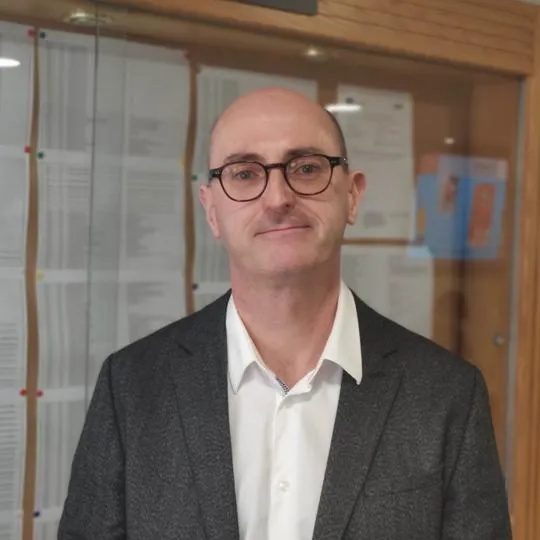By demonstrating the link between persistent poverty and high or rising inequality, King’s research spelled out the need to take into account national inequality in the study of global poverty. This suggests a reframing of global poverty away from ‘traditional aid’ based on resource transfer towards policies of national redistribution.
Professor Andy Sumner
29 June 2021
Research from King's has found that, contrary to established expectations, many of the world's poorest people live in middle income countries.
To “end poverty in all its forms everywhere” is the primary UN Sustainable Development Goal. With approximately 700 million people living in extreme monetary poverty globally, and another billion living not far above extreme poverty, where the poor are located is an important question for international agencies and advocacy groups.
Countries are categorised by the World Bank as “low, lower-middle, upper-middle or high income” according to their average gross national income (GNI) and this is a factor in how much global aid support they receive.
In 1990, around 90% of people living in poverty across the globe were living in low-income countries and organisations operated under this understanding in working to eradicate poverty.
However, analysis of the global poverty data carried out by King’s Department of International Development found that, contrary to the established understanding, most of global poverty is now in middle-income countries.
Based on modelling future scenarios as far as 2030, researchers demonstrated that “even on the most favourable assumptions, there was no strongly compelling case for assuming poverty in middle-income countries would easily disappear as countries became better off”.
The poverty paradox
A key factor behind their findings is that several countries, such as China and India, have witnessed dramatic economic growth and consequent reclassification from low to lower-middle income countries. Despite this, the King’s researchers identified large pockets of poverty remain in middle-income countries (MICs).
This has highlighted what Professor Andy Sumner has called the ‘Poverty Paradox’: the rise of a country’s income per person does not automatically eradicate poverty for the poorest.
Understanding the location of global poverty
In a world where recent years have seen a significant shift in economic growth and patterns of consumption, understanding the changing location of poverty is a vital step towards its eradication.
The Department of International Development has played a vital role in mapping out the locations of the world’s poorest people, and has demonstrated the need to address national inequality in order to eradicate global poverty. Their results continue to inform the understanding of policy-making staff in key organisations working to end poverty.
The findings from the King’s research have been instrumental in adapting the approach of NGOs and international government bodies to eradicating global poverty. Understanding the changing nature of poverty and inequality has allowed organisations to implement targeted action and policies to address the roots of global poverty.
For example, the World Bank has been able to consign more weight to analysis of poverty and poverty eradication strategies in MICs:
Because of the work of King’s researchers, we became aware that ¾ of world’s poorest people are in middle-income countries. This recognition led to an immediate adjustment in the thinking of official development agencies and made us think about how we should address poverty in middle-income countries over the next 20 years.
A former board member at the World Bank
Similarly, NGOs including Oxfam, Action Aid and Save the Children have been able to adjust the focus of their activism towards reducing inequality as a means to ending global poverty:
Organisations needed a demonstration of the relationship between the necessity of tackling inequality and the ability to reduce poverty. The rigorous quantitative analysis undertaken by King’s provided a real breakthrough in the debate and made the difference in changing the policy position.
A senior staff member at Action Aid
As we start to recover from a pandemic that has affected the lives of millions across the globe, we are faced with a crucial opportunity to build back better. Research from Professor Andy Sumner and the Department of International Development will continue to be vital in aiding organisations across the world to meet the Primary UN Sustainable Development Goal of eradicating global poverty.
Delivering the UN Sustainable Development Goals
King's College London has a long and proud history of serving the needs and aspirations of society. We are committed to the UN Sustainable Development Goals (SDGs) as a university, and we use them as a framework for reporting on our social impact. The SDGs are a set of 17 goals approved by the 193 member states of the United Nations (UN) which aim to transform the world by 2030. This research supports SDGs 1, 10 and 16.

